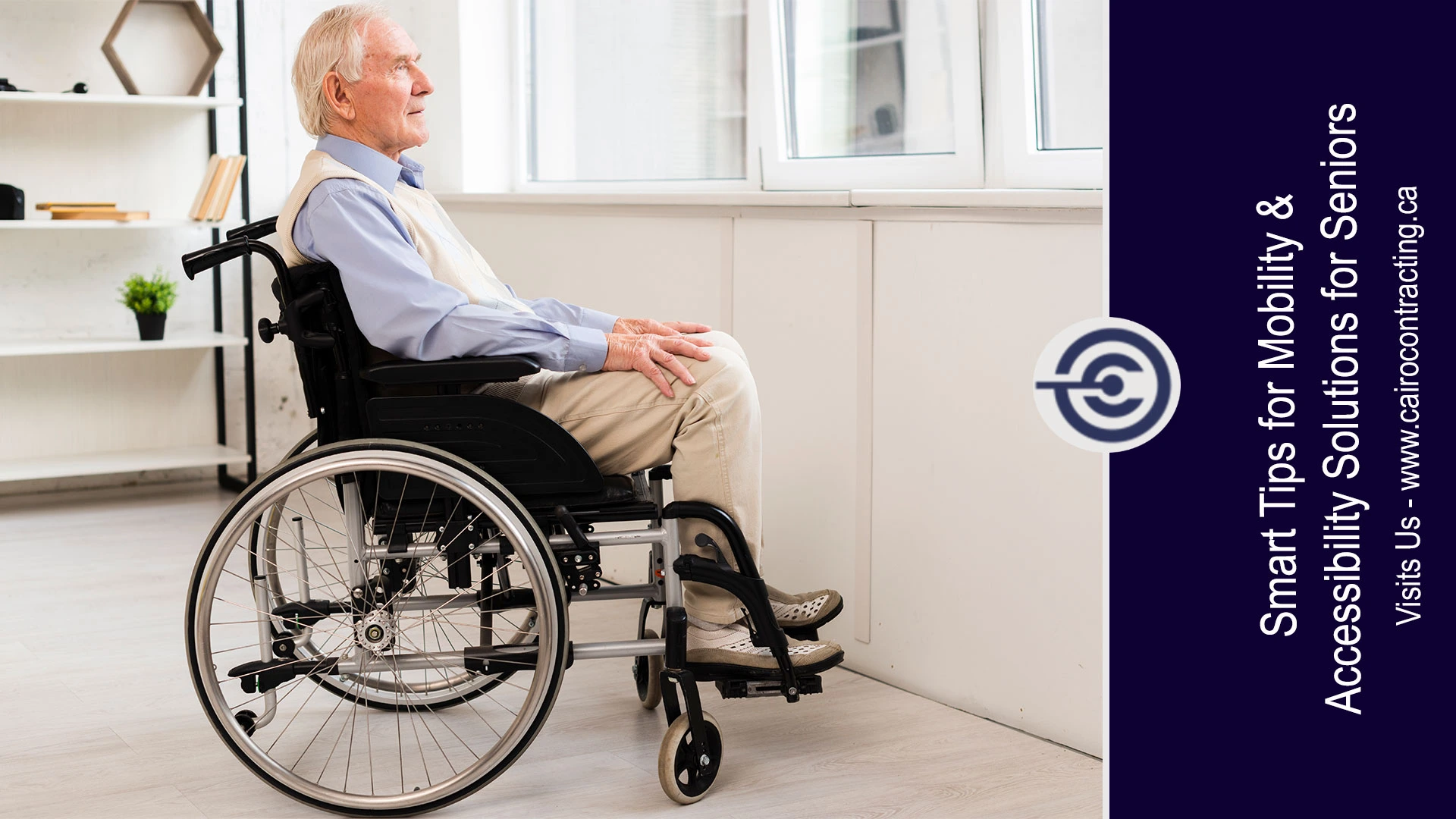Living independently as an elderly person or with a disability can bring challenges, but it’s also very possible with the right strategies for mobility and adjustments for accessibility solutions. Here are some tips that can help:

1. Adapt Your Living Space
- Make Home Modifications: Install grab bars, mobility ramps, and wider doorways to accommodate mobility aids like wheelchairs or walkers. If stairs are burdensome, stairlifts can be a cost-effective accessibility solution as well. Lower counters and accessible kitchen appliances can also help with tasks.
- Create a Clear Path: Remove clutter and obstacles that could lead to trips or falls, ensuring there are clear pathways in your home for mobility.
- Lighting: Ensure that your home is well-lit, particularly in hallways, stairways, and bathrooms. Motion-sensor lights can help you navigate safely at night.
2. Assistive Technology
- Smart Home Devices: Voice-activated assistants like Alexa or Google Home can control lights, alarms, thermostats, and even help with reminders.
- Emergency Alert Systems: Consider a personal emergency response system (PERS) that allows you to call for help with the push of a button.
- Adaptive Devices: Devices like automatic pill dispensers, specialized kitchen tools, or large-button phones can make daily tasks easier.
3. Manage Health & Medications
- Stay Organized with Medication: Use a pill organizer or set alarms on your phone to remind you when to take medications.
- Regular Check-ups: Stay in touch with your healthcare provider and attend regular check-ups. Telehealth services can also be a great accessibility solution without needing to leave home.
- Physical Therapy or Exercise: Regular movement and exercise, even if it’s gentle, can help improve mobility and strength. Many exercises can be done in a chair or with limited movement.
4. Establish a Routine
- Daily Routines: Having a set routine can reduce stress and help you stay organized. It also aids in managing tasks more effectively.
- Break Tasks into Steps: To avoid feeling overwhelmed, break larger tasks down into manageable steps. For example, if cleaning is difficult, focus on one room at a time or one task per day.
5. Social Connections
- Stay Socially Engaged: Being isolated can lead to depression or anxiety. Stay in touch with family and friends through phone calls, video chats, or social media.
- Community Resources: Many communities offer services such as senior centers, volunteer drivers, or home visits to help with companionship and socialization.
6. Seek Assistance When Needed
- Personal Care Services: Consider hiring help for tasks like bathing, dressing, or meal preparation if those tasks become challenging.
- Meal Delivery Services: There are meal delivery services specifically for seniors or people with disabilities. Some of these services cater to specific dietary needs as well.
- Home Care Aides: If you need help with things like housekeeping or personal care, look into home care agencies that can provide assistance.
7. Financial Planning
- Budget Wisely: Managing finances can be tricky, but with the right planning, it can be easier. Look into financial aid programs like Medicaid or Supplemental Security Income (SSI), and be mindful of your spending.
- Consider Technology for Money Management: Use apps or services that can help track expenses, set reminders for bill payments, or automate savings.
8. Stay Safe
- Prevent Falls: Use non-slip rugs, wear shoes with good support, and keep the floors clear. Especially around the staircase or bathroom, get them modified for easy accessibility solutions to minimise the risk of falls or injury.
- Emergency Contacts: Have a list of emergency contacts in an easily accessible location, like on the fridge or saved in your phone.
9. Mental and Emotional Well-being
- Stay Positive and Set Goals: Stay mentally active by reading, playing games, or doing puzzles. Having a hobby or goal to work toward can help with motivation.
- Seek Mental Health Support: Talking to a therapist or joining support groups can help with mental health challenges that may come with aging or living with a disability.
10. Transportation and Mobility
- Transportation Services: If driving isn’t possible, look into local transportation options, such as ride-sharing services, community buses, or volunteer driving programs.
- Mobility Aids: If needed, ensure you have access to the right mobility aids (e.g., wheelchair, scooter, cane) and that they’re well-maintained.
By creating a supportive environment with right accessibility solutions for mobility, seeking help when necessary, and utilizing technology and community resources, elderly people and individuals with disabilities can live independently and enjoy a fulfilling life.